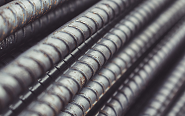Government/Policy

November 18, 2024
Rebar import duties to continue for 5 more years
Written by Laura Miller
Anti-dumping duties (AD) on rebar imports from a handful of countries will continue to be collected for at least another five years.
That’s because the International Trade Commission (ITC) voted on Friday to continue the anti-dumping duty orders on rebar, which have been in place since 2001. They cover rebar imported from Belarus, China, Indonesia, Latvia, Moldova, Poland, and Ukraine.
The agency said that revoking the duties would likely result in continued harm to the domestic industry.
The ITC’s vote was the last step in the fourth sunset review of the AD duty orders.
Earlier this year, the US Department of Commerce had found that letting the duties expire would lead to the recurrence of dumping at margins of up to 114.53% for Belarus, 133% for China, 71.01% for Indonesia, 16.99% for Latvia, 232.86% for Moldova, 52.07% for Poland, 41.69% for Ukraine.
Sunset reviews are conducted every five years. If the agency makes a negative injury ruling in these reviews, the duties are then allowed to expire.







